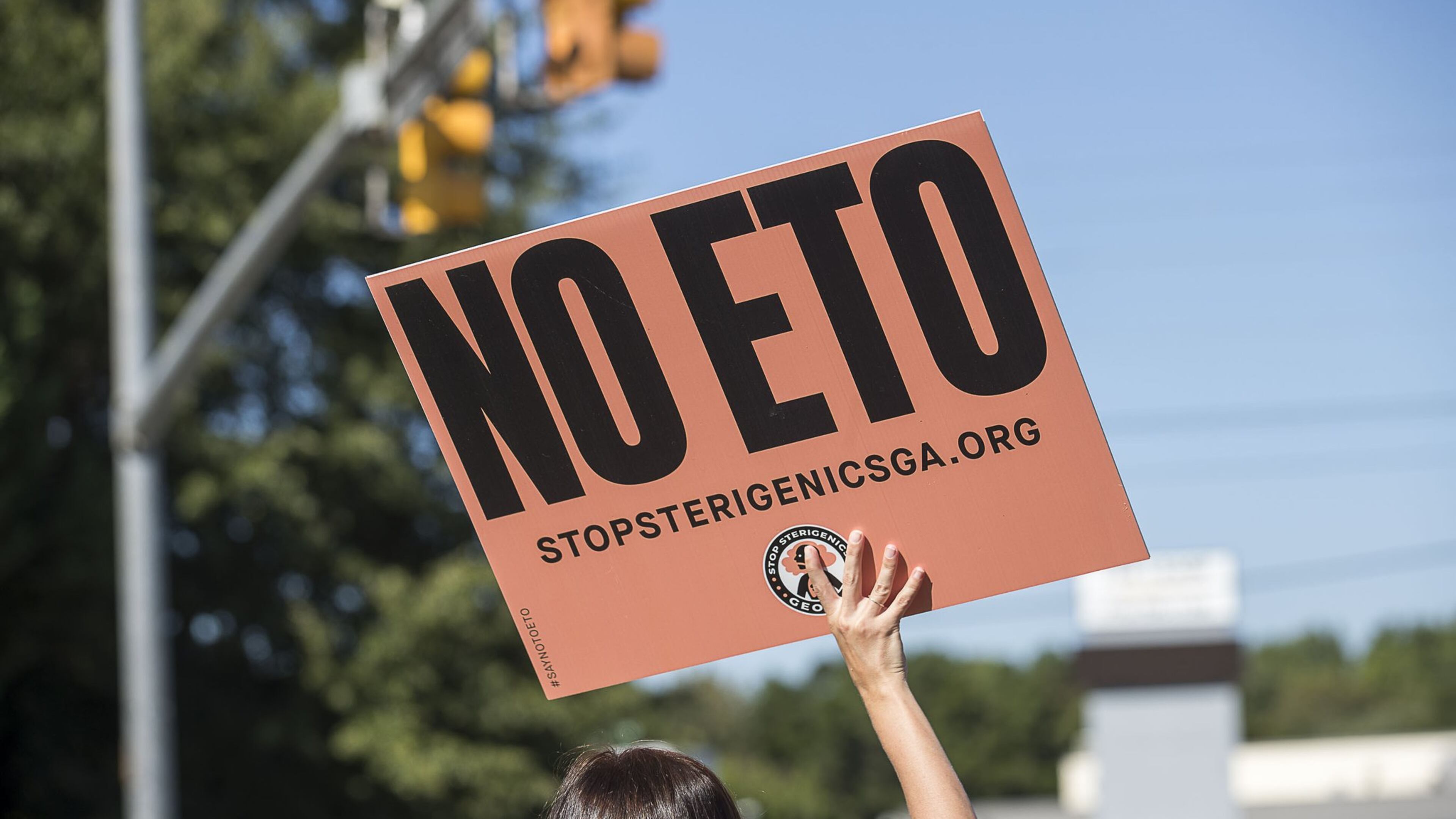Environmental law group: Sterigenics permit application deeply flawed

An air emissions permit application submitted by Sterigenics to state regulators is incomplete, inaccurate and would apply less stringent controls than similar facilities in other states, according to a lengthy critique filed Thursday by an environmental law group.
The Southern Environmental Law Center sent the 19-page letter, plus supporting documents, to the state Environmental Protection Division this week on behalf of grassroots groups that want the medical sterilization facility in Cobb County shut down over toxic emissions. The plant uses ethylene oxide to sterilize medical equipment.
“While we are pleased that EPD has agreed to accept comment on the permit application, we note EPD has already claimed to have approved the plans therein – indeed, to have done so a mere three days after the application was submitted,” the letter reads.
“We sincerely hope that is not the case, as the permit application contains numerous unsupported assumptions and other flaws that make EPD’s hasty grant of approval inappropriate.”
The EPD spokesman said in an email that the agency is reviewing the letter.
“EPD does not merely approve or deny permit applications,” the email said. “When EPD is developing permit conditions or limitations, it carefully considers the information submitted by the applicant, conducts its own review of the facts, science and legal requirements, and evaluates comments received from the public on that application.
“Particular permit conditions are never a foregone conclusion.”
A Sterigenics spokesman said the company has not reviewed comments on the permit application but it is looking forward to working with regulators to “implement the enhancements to our facility.”
“Sterigenics significantly outperforms permitted emission levels at its Atlanta facility and is voluntarily taking actions to further reduce the minimal ethylene oxide emissions using the best available technology,” the spokesman said.
The letter was written with the assistance of Ranajit Sahu, an expert in environmental and mechanical engineering. It outlines a number of concerns with the application, some of them highly technical.
It says many of the assumptions underlying emissions calculations in the permit application are unverified, and have remained unchanged for decades, even though the facility has undergone several design changes over the years. It also says the application provides “no engineering discussion” of proposed changes to the plant’s pollution controls, and it questions whether the existing system is designed to handle current emissions.
The plant has increased capacity since it installed its most recent emissions control system, and therefore its pollution control guarantees are no longer valid, the letter argues. Subsequent performance tests of this system in 2014 and 2016 were substandard, it adds.
“We cannot overstate the significance of these flaws contained in reports that are now three and five years old, respectively,” the letter reads. “The purported pollution control efficiencies drawn from these reports form the basis for the emissions estimates in the application.”
Letter follows legal challenge
The letter comes on the heels of a legal challenge filed last week that seeks to invalidate an agreement between Sterigenics and the EPD that allowed the company to go forward with upgrades included in its permit application, even though the permit has not been approved.
The legal complaint accuses the EPD of violating state law by failing to make public a draft of the agreement and accepting public comment on it.
EPD officials declined to comment on the legal challenge last week, but said in Friday’s email that the agreement includes a construction schedule for equipment to achieve significant emissions reduction, and a plan for more frequent monitoring.
But the legal limits for plant emissions “will be in the permit that EPD is presently considering.”
The letter — filed on behalf of Stop Sterigenics GA, Environment Georgia, and the Georgia Sierra Club — is separate from the legal challenge but referenced the same agreement, as well as a press release the state issued saying it had approved the company’s “plans” to voluntarily reduce emissions.
The operating conditions proposed by Sterigenics for its Cobb County plant are not as comprehensive as those approved for the company's facility in Willowbrook, Illinois, which has been shut down pending improvements required by that state, according to the letter.
“Because Sterigenics has failed to submit a ‘high-quality’ application as required by EPD’s procedures for expedited permitting, EPD should reject the application and require correction of the deficiencies described above,” the letter concludes. “In addition, EPD should insist that Sterigenics deploy controls comparably stringent to those it has agreed to implement at its Willowbrook facility.
More Stories
The Latest



